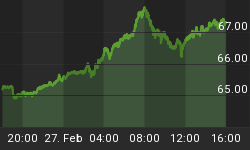| Merk Market Outlook provides the weekly perspective on the markets and the economy. Don't miss an Outlook: Sign up for our Newsletter The Archive: Read past Market Outlooks | |
The events of the past seven days have altered the shape of the market and will impact the economy going forward. The current financial crisis reflects the failure of firms to deleverage in an acceptable period of time. The inability or unwillingness to accept the terms of re-capitalization offered troubled institutions has set in motion the financial train wreck of which we all bear witness. While growth over the past year has exceeded the very low expectations set by the market, the risk to economic output over the remainder of the year is to the downside.
First, the reduction of available credit to consumers and firms will impact overall economic activity. This should be initially observed inside the housing sector. The development community which, until recently took heart in the flattening in the negative slope of housing starts and falling interest rates, will take it on the chin once again as tight credit and lending standards impede the building of homes and the purchase of an already elevated existing stock on the market.
Second there are still pervasive problems in the banking industry. For example, WaMu (not a holding of the Merk Mutual funds) is currently trading just above $2.0 per share down from it recent high of $38.32 in September of 2007 and remains under duress. At the end of Q2'08 WaMu had just north of $150 billion in interest bearing deposits, held $181.5 billion or 58% of its total assets in home lending and wrote off $2.17 billion in non-performing loans, mostly attributed to mortgage defaults, in the second quarter. Currently, the FDIC has $52.413bln in its insurance fund balance and can tap a line of $30bln line of credit at the U.S. Treasury should additional banks fail.
Second, the sharp decline in the value of equities should provide a negative wealth effect on consumers. Personal consumption which we already expect to post a negative print in Q3'08 looks to now possibly contract at a rate of -1.0% during the quarter with additional downside risk in the final quarter of the year.
The decline in the cost of oil and gasoline will provide some savings to consumers and could possibly offset the negative impact on consumer psychology. However, as the recent data suggests even a decline of -4.2% in the cost of gasoline during the month of August did not lead to increase in retail sales during a time when back to school sales traditionally draw consumes into the malls. Given the storm clouds gathering over the consumer we think that recent events should cast a greater shadow over any increase in appetite for consumption.
External demand, which has provided a major source of support for overall economic activity during the now thirteen month financial crisis should see real declines on the back of the global credit tightening that the market is in the process of absorbing. While we are still only days into the recent evolution of the financial crisis, we are observing some unwinding of positions in Emerging Markets and risk aversion plays as capital flows into gold and Swiss Francs, two traditional safe havens in times of crises.
Should credit conditions not return to something approximating normal over the next few days our economic outlook will be adjusted accordingly. At this time, the damage wrought by the latest seizing up in the credit markets has not become an economic event. However, we have inched closer to the outcome and we continue to believe that risk is to the downside for the U.S. economic outlook.















